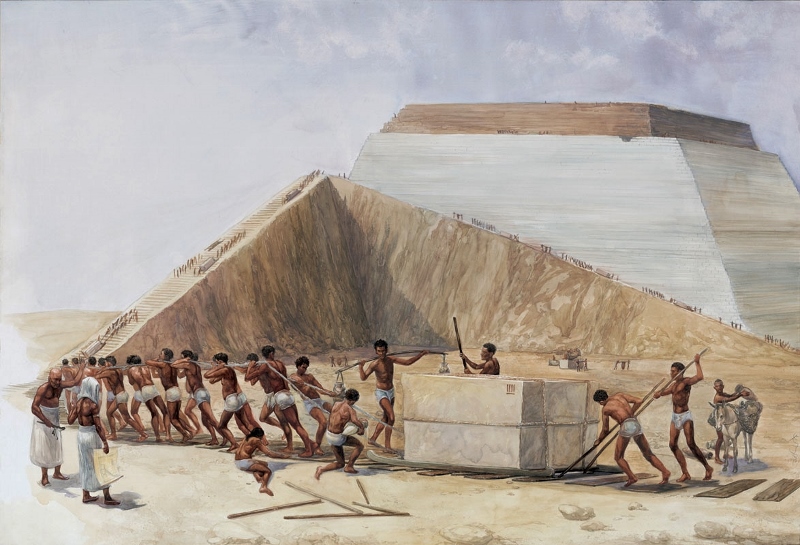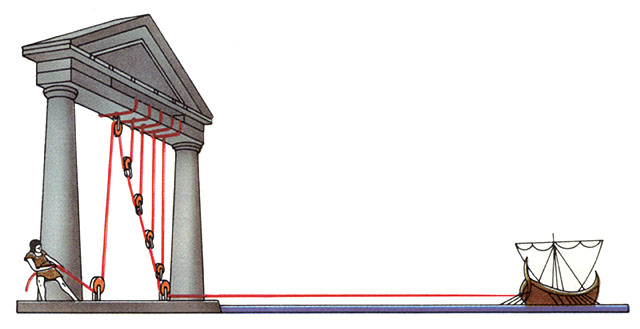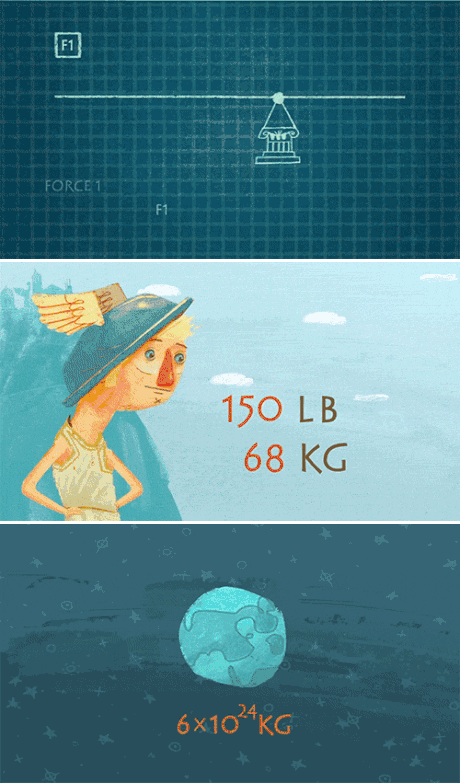Meet Archimedes
Let us tell you a story.
It starts over 4,500 years ago during the reign of the Fourth Dynasty Egyptian Pharaoh Khufu.
Khufu wanted to be buried in a tomb that was fit for a king, and so his subjects started work on a monumental building that would go on to become the Great Pyramid of Giza.

Most modern historians believe that the pyramids were built with sheer manpower, with hundreds of men pulling the heavy stone blocks along on rollers.
Fast forward to 287 BC, when Archimedes was born.
The Greek mathematician is perhaps most famous for leaping out of the bathtub and shouting “Eureka!”

But he’s also credited with one of the most remarkable human inventions since the development of the wheel: the compound pulley.
Archimedes’ system allowed people to use combinations of pulleys to allow objects of great size and weight to be moved with much less force and effort.
According to Plutarch, Archimedes himself was able to singlehandedly move a three-masted merchant ship that had been placed on dry land and loaded down with passengers and freight.

Take that, Khufu.
Always one to deliver a snappy one-liner, Archimedes is also credited with saying:
“Give me a lever long enough and a fulcrum on which to place it and I shall move the earth.”
Archimedes On Hosting
Unfortunately, we’ll never know what Archimedes would have made of the complex world of web hosting and server management.
But what we can say for certain is that Archimedes’ principle of the compound pulley can be easily adapted to high-performance hosting.
A good host will follow Archimedes’ approach to heavy lifting, relying on intelligence and technique instead of raw manpower.

Here at EuroVPS, our system of pulleys is our experience with PHP, NGINX and other components in the stack.
And by deploying them correctly, we’re able to lift heavy loads with half the effort, by tuning up settings to drive out latency.
What Does This Mean For You?
If your host follows the principles of the Ancient Egyptians – by trying to lift heavy loads by deploying more hardware – then the costs could be passed on to you.
On top of that, their servers may be more prone to overloads, downtime and slow speeds as they tense their muscles and try to drag your marble blocks towards your visitors.
By contrast, if they follow the principles of Archimedes – by fine-tuning their software and hardware to make sure they’re leveraging the best possible performance – they can reduce the strain on their servers while keeping costs down.




